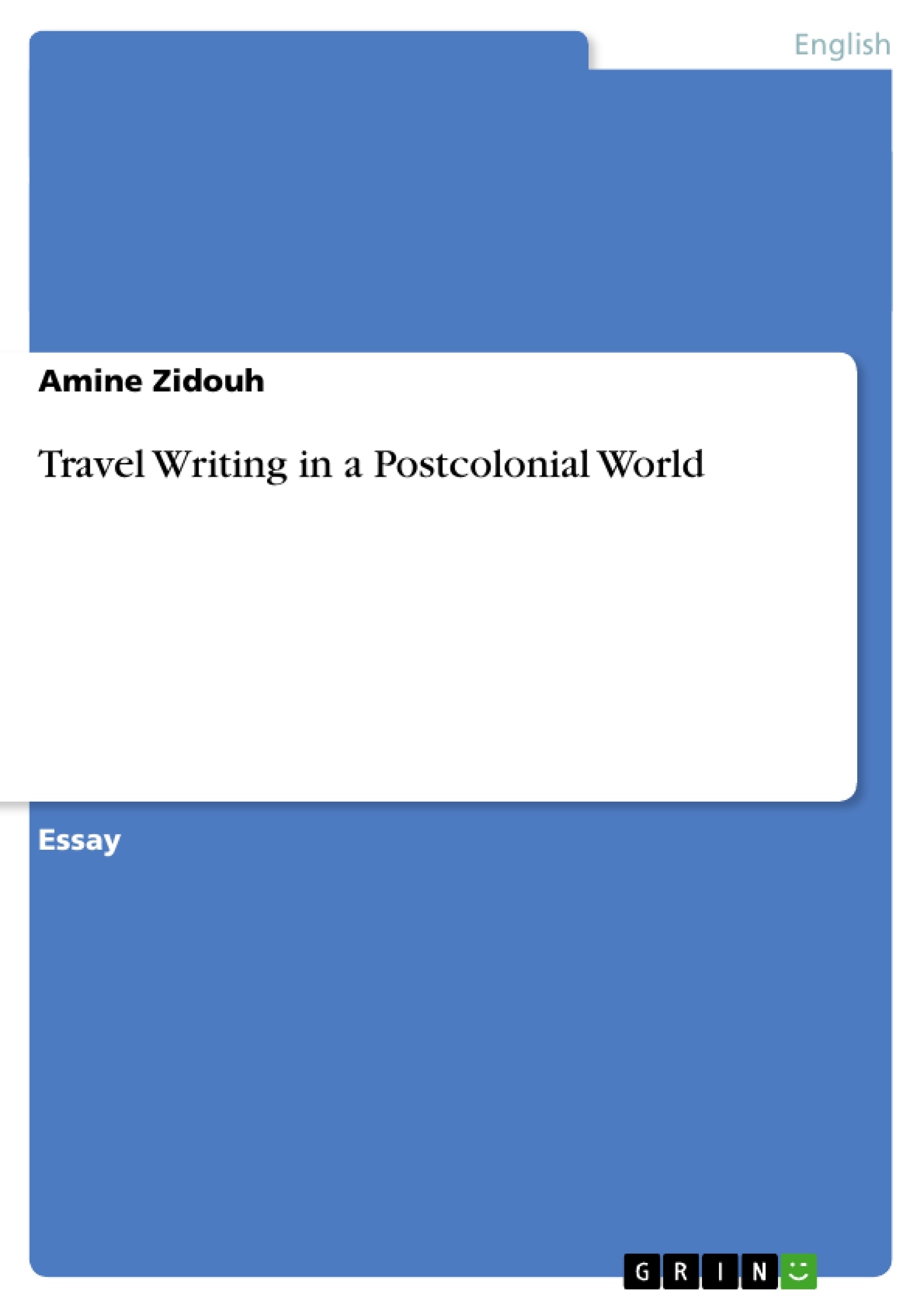Travel writing has been, is, and probably will remain, demonized by postcolonial critics. This ‘genre’ has very quickly been linked to what Edward Said named Colonial Discourse, mainly for what many believe to be an intertwined relationship with colonialism. Travel writing’s main ‘contribution’ is to have diffused sermons of difference and by difference; inferiority, which was then used a rhetorical apology by the west to conquer and colonize. David Spurr in his book The Rhetoric of Empire argues in the same direction. He suggests that travel writings constituted “a source of information” to future-colonial administrators about the situations in their future colonies; that by describing and gazing upon they already started having a sense of ownership vis-à-vis these spaces. Douglas Ivison starts his article entitled “Travel Writing at the End of Empire…” by arguing in the same direction, he says that “[t]he practice of travel writing, and that of reading travel books, was inextricably intertwined with the creation and maintenance of European imperialism. Travel and its by-product travel writing were both enabled by and essential to, both cause and effect of, the project of imperial expansionism.” (2003: 1) It is thus very clear that there is a definite yet very complex interconnection between imperialism and travel writing.
Inhaltsverzeichnis (Table of Contents)
- Travel Writing in a Postcolonial World
- Colonial Discourse
- Travel Writing as Colonial Discourse
- Travel Writing as Colonial Discourse and its Impact
- The Traveler
- Travel Writing of the Margins?
- Postcolonial Travel Writings
Zielsetzung und Themenschwerpunkte (Objectives and Key Themes)
This paper explores the role of travel writing within the framework of colonial discourse. It investigates how this genre has been instrumental in shaping Western perceptions of the world and its 'others' and how it has contributed to the creation and perpetuation of imperial power structures. The paper delves into the following key themes:- The relationship between travel writing and colonial discourse
- The impact of travel writing on Western identity and perception
- The limitations of traditional travel writing as a tool for understanding the world
- The potential for a postcolonial approach to travel writing
- The role of institutions in shaping knowledge and power dynamics
Zusammenfassung der Kapitel (Chapter Summaries)
- Travel Writing in a Postcolonial World: This introductory chapter establishes the historical and theoretical context for the paper, outlining the critical perspectives on travel writing in a postcolonial world. It examines the key figures and concepts that have shaped this field of study, including Edward Said, Frantz Fanon, and Ania Loomba.
- Colonial Discourse: This chapter explores the concept of colonial discourse and its relationship to travel writing. It examines how travel writing has been used as a tool for constructing and legitimizing colonial power structures and for representing the 'other' in a way that reinforces Western dominance.
- Travel Writing as Colonial Discourse: This chapter delves deeper into the specific ways in which travel writing functions as a form of colonial discourse. It examines the techniques used by travel writers to represent the 'other' and how these representations contribute to the creation and maintenance of colonial power dynamics.
- Travel Writing as Colonial Discourse and its Impact: This chapter examines the impact of travel writing on Western identity and perception. It discusses how travel writing has been used to construct Western identities and to solidify the boundaries between the 'West' and the 'Rest'.
- The Traveler: This chapter explores the concept of the traveler within the framework of colonial discourse. It discusses how the figure of the traveler is constructed and how this construction reflects the power dynamics of colonialism.
- Travel Writing of the Margins?: This chapter raises questions about the possibility of travel writing from marginalized perspectives. It examines the limitations of traditional travel writing as a tool for understanding the world and explores the potential for a more inclusive and diverse approach.
- Postcolonial Travel Writings: This chapter considers the possibilities for a postcolonial approach to travel writing. It examines the challenges and opportunities for writing about travel from a postcolonial perspective and considers the implications for understanding the world in a more nuanced and equitable way.
Schlüsselwörter (Keywords)
The key concepts explored in this paper include colonial discourse, travel writing, postcolonialism, representation, identity, power, institutions, and the ‘other’. These keywords highlight the paper's focus on analyzing how travel writing has been used to construct and legitimize colonial power structures, to shape Western identities, and to perpetuate inequalities.- Arbeit zitieren
- Student-Researcher Amine Zidouh (Autor:in), 2013, Travel Writing in a Postcolonial World, München, GRIN Verlag, https://www.grin.com/document/212050



